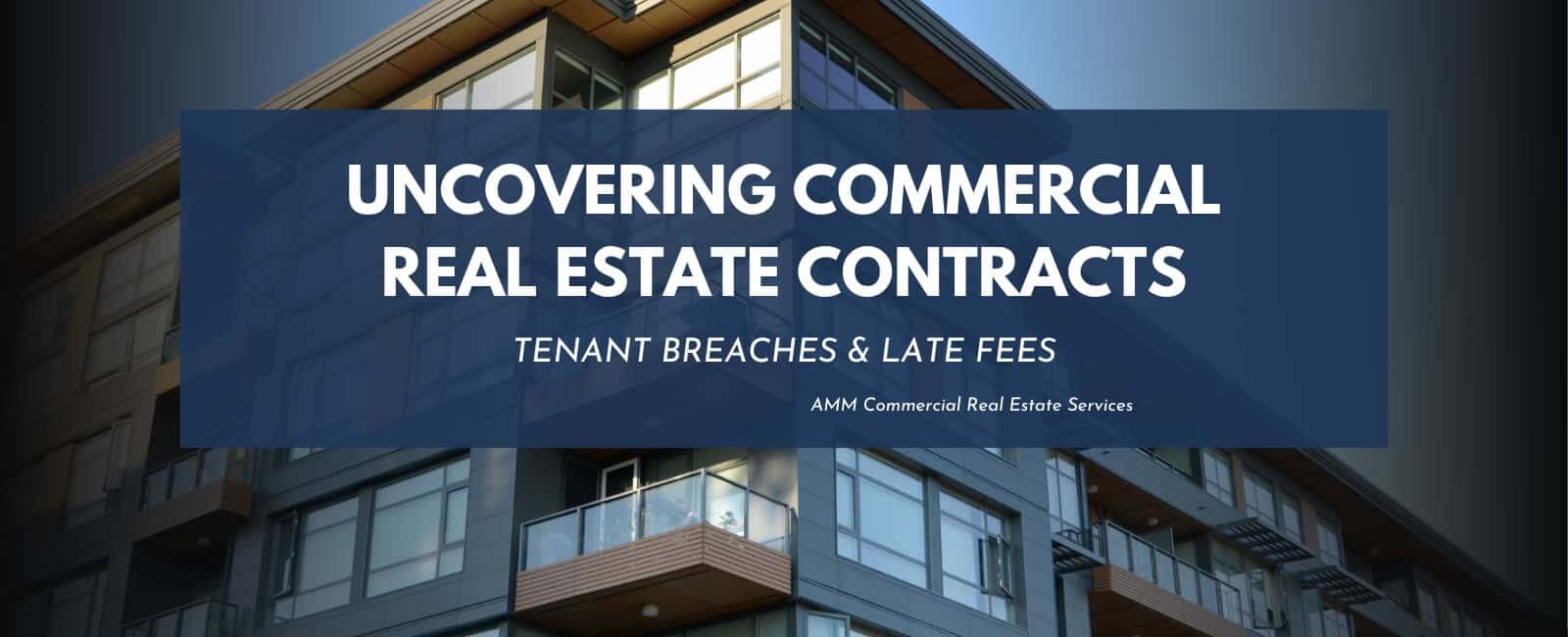As a commercial landlord, it is imperative that the lease agreement you sign with a renter has protections for if the renter defaults on any stipulations in the contract. Obviously, paying rent is an important part of the agreement between a lessee and lessor, but there are other protections built into most commercial leases to allow for damages to be paid by the renter if they do not treat the property in good faith.
Let’s take a look at a standard commercial lease agreement, break it down into layman’s terms, and explain how you, the landlord, are protected from bad actors.
Definition of Default
First, we have some terms used to define the types of violations of a contract that can occur with a lessee. Let us start with explaining the difference between a “default” and a “breach”. A default is an action on the lessee’s part that is forbidden by the lease. This could be parking in the wrong driveway, subletting the property without permission, or paying rent late. Any act that contradicts the lease agreement is a “default.”
Examples of Defaults (all of which can/should be specified in writing):
- Falsifying any of the information on the rental application, including background info or financial reports.
- Leaving the rented property unattended and/or unsupervised without properly securing or monitoring the property.
- Permanent harm caused to the property, known as “waste.”
- Preventing the landlord from visiting and/or surveying the property if proper notice is given.
- A crime being committed on the property, or by lessees of the property, be it public nuisance or felonious in nature.
- The lessee neglects to acquire licenses, permits, insurance policies, or bonds as required by municipal decree.
- The Big One: Rent is not paid on time.
All of these activities constitute examples of default, and when pointed out by the lessor, start a clock. A standard commercial lease will dictate the probationary period, or leeway, the lessor will offer a lessee to improve the conditions of a default. Besides late rent (see below), three days is a common leeway value. If the default is not corrected within the time noted in the lease, the lessee is considered to have “breached” the lease agreement.
Definition of Breach
A breached lease not only means the lessee no longer has any valid claim on the rented property, usually there will be writing detailing exactly how much restitution is owed to the landlord. The lessee will almost always be on the hook for the remaining balance of rent owed, any costs associated with moving the lessee off the property, and possibly even the cost associated with re-listing of the property. The power to make these claims are given by the lease agreement. Make sure you have language that gives you this power when you have a lease drafted.
Penalty Fees
As mentioned above, the parameters for breach are usually different when it comes to late rent. As a missed payment is not always made in bad faith, it isn’t unusual for a landlord to offer longer leeway (perhaps five days instead of three) for missed rent payments. Still, even when the relationship between a lessee and a lessor is otherwise healthy, late rent is not okay. In addition to constituting a default, many commercial leases now have standard language to drastically dissuade lessees from paying rent late in the form of fees.
What kinds of fees can be levied? A standard value for a late fee is an additional 10% of the rent, or $100, whichever is greater. Further, measures can be put in place to ensure this doesn’t become the standard. Sample language in a lease might state that multiple late fees incurred consecutively will change the payment schedule agreement for the rent, switching it from a monthly plan to the rent being owed quarterly, up front.
Commercial vs Residential Lease Agreements
Regardless of how you choose to draft your lease agreement, understand that the document is the source of any protections you wish to seek from delinquent lessees. The state tends to restrict landlord protections in the case of residential properties, but commercial landlords have much less restrictions to contend with. Include clauses that will cover you in the event of a default or a breach, and enforce those clauses when necessary. You will save yourself money and stress, and encourage more responsible lessee behavior.
Preview AIR CRE Landlord Contract

